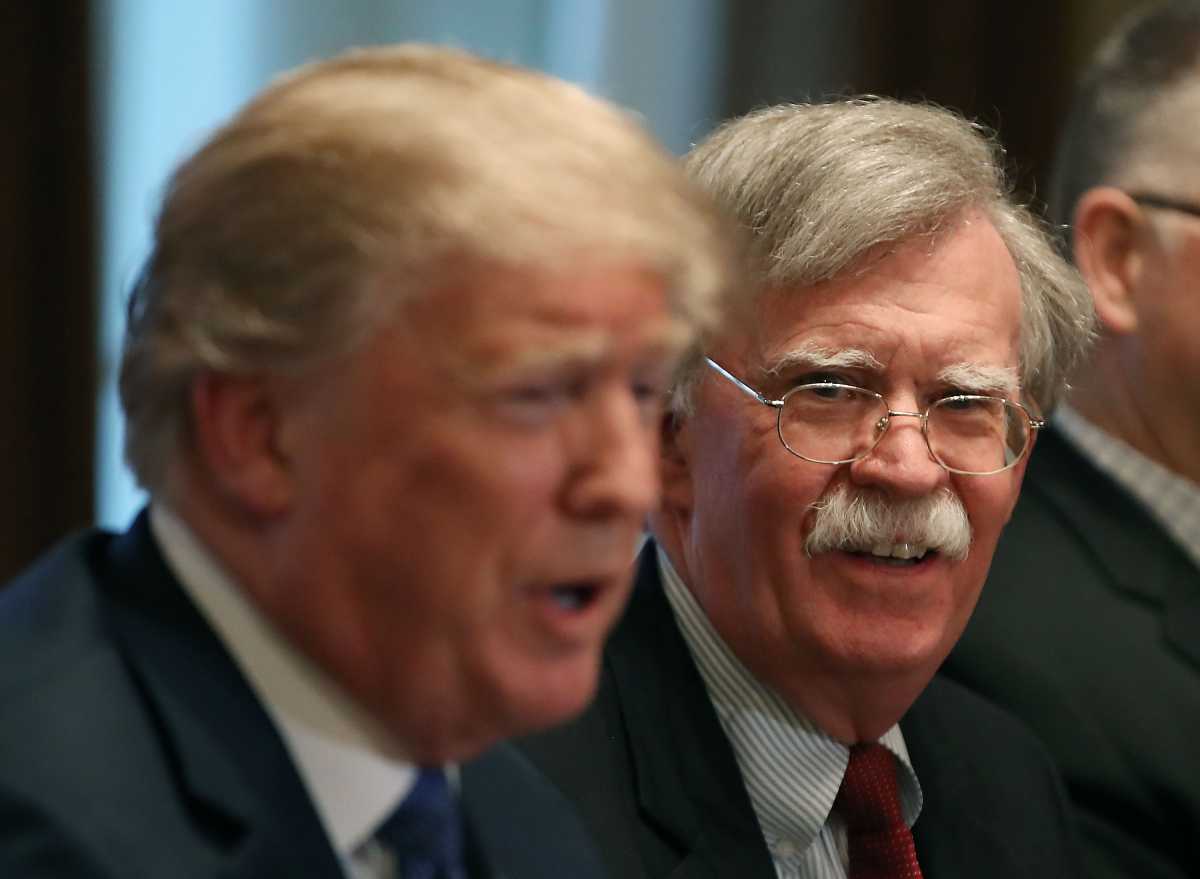In the short span of two-and-a-half years, the Trump administration has thrown several hard-won, very successful nuclear arms control and nonproliferation initiatives overboard, and put others at risk.
This is a critical moment. We need your help and support to address what has become a genuine crisis in arms control and nonproliferation.
Self-Made Crisis Over Iran: May 8 marked one year since President Donald Trump decided to violate the successful 2015 Iran nuclear deal by imposing punishing sanctions on Iran. Nonetheless, to date, Iran has complied with the limits set by the nuclear deal.
But Iran’s leaders say they may soon begin to take countermeasures—including exceeding some of the limits of the 2015 Iran nuclear deal—unless Europe and other supporters of the deal compensate for their lost oil revenue. In response, hawks inside the Trump White House are hyping sketchy intelligence reports about Iranian actions in the Persian Gulf they say might require massive U.S. military action.
We are pushing international supporters of the Iran Deal to help uphold the deal, we are calling on Iran to exercise nuclear restraint, and we are urging U.S. policymakers to support U.S. re-entry into the Iran nuclear deal as early as 2021.
Dissing the Arms Trade Treaty: In a blatant and cynical act of political pandering, Trump told a National Rifle Association in April crowd that he will withdraw the United States from the global Arms Trade Treaty. This action will not only undermine efforts to stem illicit arms transfers that contribute to conflicts but will undermine global U.S. leadership. (See below for more details.).
Simmering North Korea Tensions: At the failed Trump-Kim summit in Hanoi, National Security Advisor John Bolton convinced Trump to demand that North Korea must completely denuclearize before there is any sanctions relief. As a result, talks stalled and North Korea continues to amass fissile material for nuclear weapons. How long the window of opportunity for a pragmatic action-for-action deal on denuclearization and peace will remain open is not clear.
Nuclear Arms Control at Risk: The Trump administration is expected to terminate the INF Treaty Aug. 2 in response to Russian violations, but without a viable plan B. As we first reported in Arms Control Today, the Department of Defense wants Congress to spend $100 million on three types of INF-prohibited missiles that could be reintroduced into Europe or in Asia. We are urging Congress to block such efforts.
Meanwhile, the administration is delaying on whether to extend the only remaining bilateral nuclear arms control agreement New START and has refused to resume strategic stability talks with Russia to avoid miscalculation. You can help save New START by contacting your members of Congress through our latest action alert.
Our dedicated staff and board of directors are working overtime on several fronts alongside partner organizations, like-minded experts, and policymakers to try to prevent further damage and to lay the foundation for repairing it in the years ahead. We appreciate your help and support.
Thank you,
 Daryl G. Kimball,
Daryl G. Kimball,
Executive Director
TAKE ACTION: Save Nuclear Arms Control
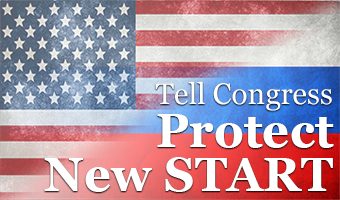 New START is set to expire in 2021. But the U.S. and Russian presidents can extend the treaty–and its irreplaceable verification and monitoring system—for a period of up to five years.
New START is set to expire in 2021. But the U.S. and Russian presidents can extend the treaty–and its irreplaceable verification and monitoring system—for a period of up to five years.
Instead of working towards this goal, the Trump administration is busy coming up with reasons why they shouldn’t extend New START. A growing number of Republican and Democratic members of Congress, including the leaders of congressional national security committees, are voicing their support for the treaty and its extension with new legislation.
Tell your members of Congress to support these efforts to make sure that the limits on Russia’s nuclear weapons arsenal—which help keep us from engaging in an expensive and dangerous arms race—remain in force.
ACA Seeks to Build Support for the NPT
The Arms Control Association team of Alicia Sanders-Zakre, Daryl Kimball, plus board members Tom Countryman and Laura Kennedy traveled to New York for the April 29-May 10 Preparatory Committee Meeting for the pivotal 2020 Review Conference.
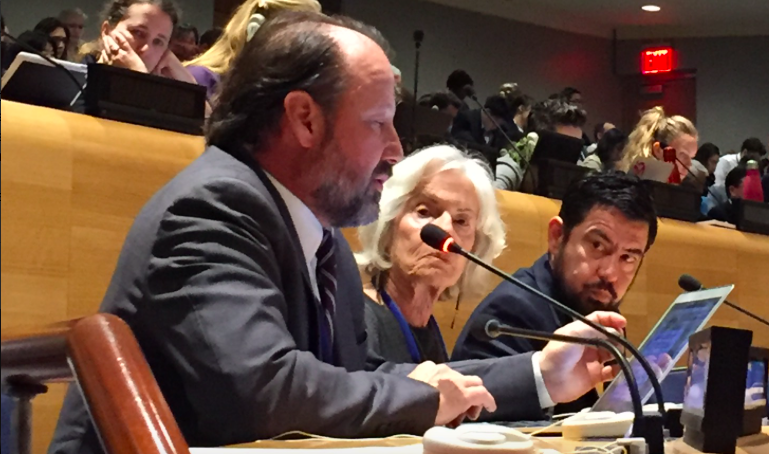 As Alicia reported in her series of ArmsControlNow blog posts on the proceedings, there is strong support for the treaty itself but there are deep divisions on implementation of key commitments, particularly on disarmament, and over the Trump administration’s abandonment of the 2015 Iran nuclear deal.
As Alicia reported in her series of ArmsControlNow blog posts on the proceedings, there is strong support for the treaty itself but there are deep divisions on implementation of key commitments, particularly on disarmament, and over the Trump administration’s abandonment of the 2015 Iran nuclear deal.
The U.S. delegation insisted that “the traditional, numerically-focused 'step-by-step' approach to arms control has gone as far as it can under today’s conditions.”
In an address to the conference on behalf of a diverse array of 40+ organizations, experts, and former officials, including the late Senator Richard Lugar, Daryl Kimball said:
“In reality, the current environment demands the resumption of a productive, professional dialogue between representatives of the White House and the Kremlin on nuclear arms control and disarmament.
Countryman and Kennedy spoke at a May 2 side-event at the German Mission organized by the U.S.-Russian-German Deep Cuts Commission. On May 9, Arms Control Today editor Greg Webb joined Alicia for an in-depth interview with the incoming president of the Review Conference, Amb. Rafael Mariano Grossi of Argentina, which will appear in the June issue of the journal.
ACA Responds to ATT "Unsigning"
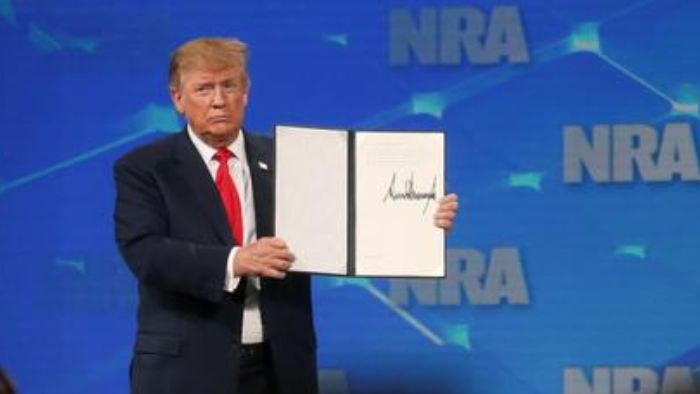 In a speech before the National Rifle Association in April, President Donald Trump announced he was "unsigning" the global Arms Trade Treaty (ATT). The Arms Control Association, along with numerous other security experts and former officials, sharply criticized the move as misguided, counterproductive, and dangerous.
In a speech before the National Rifle Association in April, President Donald Trump announced he was "unsigning" the global Arms Trade Treaty (ATT). The Arms Control Association, along with numerous other security experts and former officials, sharply criticized the move as misguided, counterproductive, and dangerous.
Board chair Thomas Countryman was the lead U.S. negotiator on the treaty in 2013 while serving as assistant secretary of state. "The President's action today is yet another mistaken step that threatens to make the world less safe, rather than more secure," wrote Countryman in The New York Times.
Noting that U.S. withdrawal as a signatory leaves us in the company of Syria, Iran, and North Korea, board member Rachel Stohl lamented that "[w]alking away from a treaty that includes nearly all of the United States' closest allies and partners, the United States is instead choosing to be in the company of governments that routinely flout responsible transfer controls."
The ATT establishes common international standards that aim to reduce human suffering caused by illegal and irresponsible arms transfers, promote accountability and transparency on the transfers of conventional arms, and improve regional stability. The treaty came into force December 24, 2014, and has 101 states-parties.
Alicia Sanders-Zakre Moves On To Next Chapter In Disarmament Career
Research assistant Alicia Sanders-Zakre, who has been a key member of our staff for the past three years, will be departing the Arms Control Association to enter an international law program in the fall.
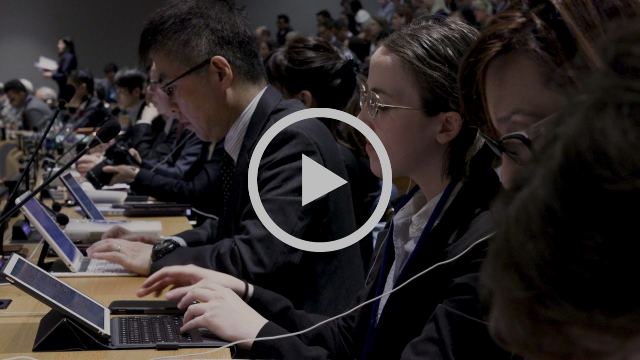 Alicia first joined us as an intern in 2016, and later became a research assistant with a focus on nonproliferation, chemical weapons, and multilateral disarmament issues. She had previously worked for The Brookings Institution and interned with several international peace and security organizations.
Alicia first joined us as an intern in 2016, and later became a research assistant with a focus on nonproliferation, chemical weapons, and multilateral disarmament issues. She had previously worked for The Brookings Institution and interned with several international peace and security organizations.
Alicia's interest in nuclear disarmament began when she first encountered the harrowing stories of the hibakusha (Hiroshima and Nagasaki atomic bomb survivors) and met longtime disarmament activist Joseph Gerson.
We’re deeply grateful for Alicia’s contributions and proud to see her taking the next step in her career in arms control and disarmament.
Fall Internship Application Deadline Is July 1
The Arms Control Association internship program serves as a training ground for the next generation of arms control researchers and advocates. Each semester, aspiring arms control advocates assist with the production of Arms Control Today, update fact sheets, reach out to journalists, and assist with public events and briefings.
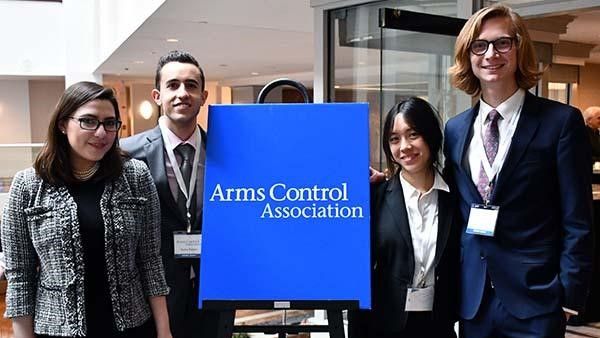 Former interns have gone on to positions at the State Department, the Brookings Institution, Georgetown Center for Security and Emerging Technology, Global Systems Engineering, and the Stimson Center, among other high profile and challenging posts.
Former interns have gone on to positions at the State Department, the Brookings Institution, Georgetown Center for Security and Emerging Technology, Global Systems Engineering, and the Stimson Center, among other high profile and challenging posts.
Applications for fall internships are requested by July 1. Learn more about how to apply for an internship at the Arms Control Association. Please share this opportunity with students that you believe would be a good fit for our work.
New Resources and Analyses
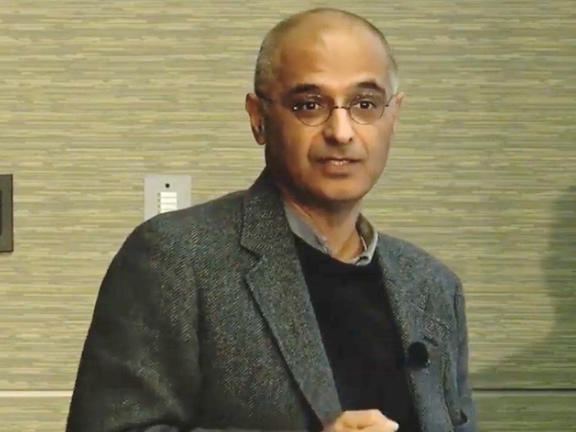 Board member Amb. Bonnie Jenkins asks the question, "Can the U.S. live with a nuclear North Korea," in World Politics Review, May 17, 2019
Board member Amb. Bonnie Jenkins asks the question, "Can the U.S. live with a nuclear North Korea," in World Politics Review, May 17, 2019- Board Member Angela Kane outlined how to bridge the divide between nuclear and non-nuclear weapons states on the Treaty on the Prohibition of Nuclear Weapons in “Between Aspiration and Reality,” May 2019
- Kelsey Davenport, director for nonproliferation policy, stated that “she sees no violation of UN resolutions if Iran is moving missiles by boat” on CNN, May 10.
- Davenport noted for NBC News that “If Iran withdraws from the agreement and resumes troublesome nuclear activities, Trump will be responsible [...]” May 3.
- Board chair Thomas Countryman spoke with The Washington Diplomat in an interview on a potential new arms race between the U.S. and Russia following the two countries abandoning the INF Treaty. April 30.
- Executive Director Daryl Kimball warned of “not enough time, and not enough trust, to negotiate, let alone ratify, a complex, new, legally binding treaty with Russia” before the expiry of New START in The Washington Post. April 25.
- Director for disarmament and threat reduction policy Kingston Reif commented on National Defense Magazine’s special report how “Space-based interceptors are unaffordable, unworkable and massively destabilizing,” April 23.
- Davenport commented on CNN how it would be a “dangerous and irresponsible decision not to renew the waivers” with Iran, April 23.
- Davenport and research assistant Alicia Sanders-Zakre suggested in an interview with The Korea Times that “Having a detailed roadmap will help North Korea ensure that the United States retains sufficient leverage to incentivize the North to continue taking steps toward denuclearization,” April 22.
On Our Calendar
- June 4-5: Executive Director Daryl G. Kimball will speak at the “Conference of the International Luxembourg Forum on Preventing Nuclear Catastrophe” on maintaining effective arms control in the absence of the INF Treaty, Rome, Italy.
- June 12: Kimball will speak at the George Washington University Boot Camp on Nuclear Security Policy hosted by the GWU Institute for International Science and Technology Policy.
- June 14: Board Chair Thomas Countryman will represent the Association at a James Martin Center for Nonproliferation Studies workshop on the 2020 NPT Review Conference, Krems an der Donau, Austria.
- June 16-17: Countryman will travel to the Vienna Center for Disarmament and Non-Proliferation to attend a Track 2 meeting with Russian nongovernmental experts.
- June 21: Countryman will speak at the 2019 NNSS Course on the nuclear Nonproliferation Treaty and the International Atomic Energy Agency safeguards system at the Brookhaven National Laboratory.
- June 24-28: Countryman will attend the Comprehensive Nuclear-Test-Ban Treaty Organization (CTBTO) 2019 Science and Diplomacy Conference in Vienna, Austria.

